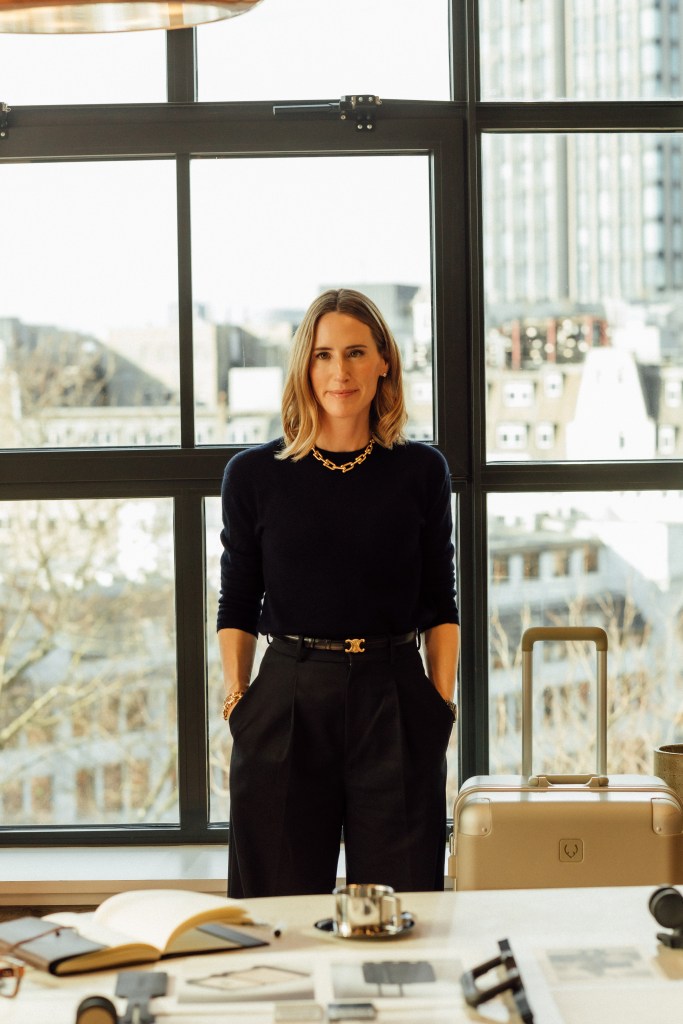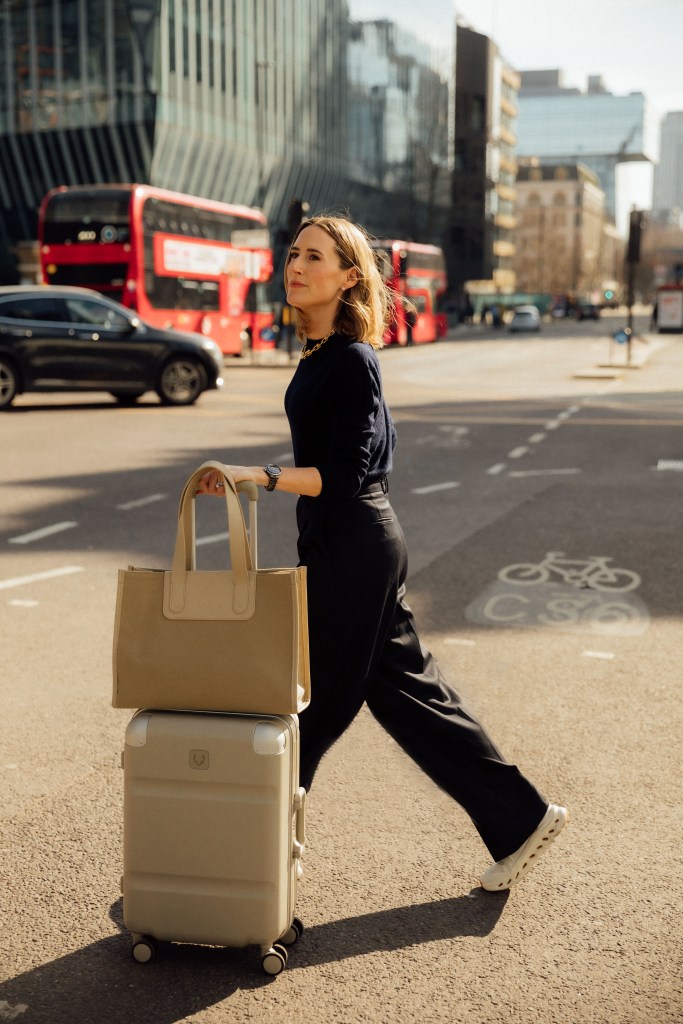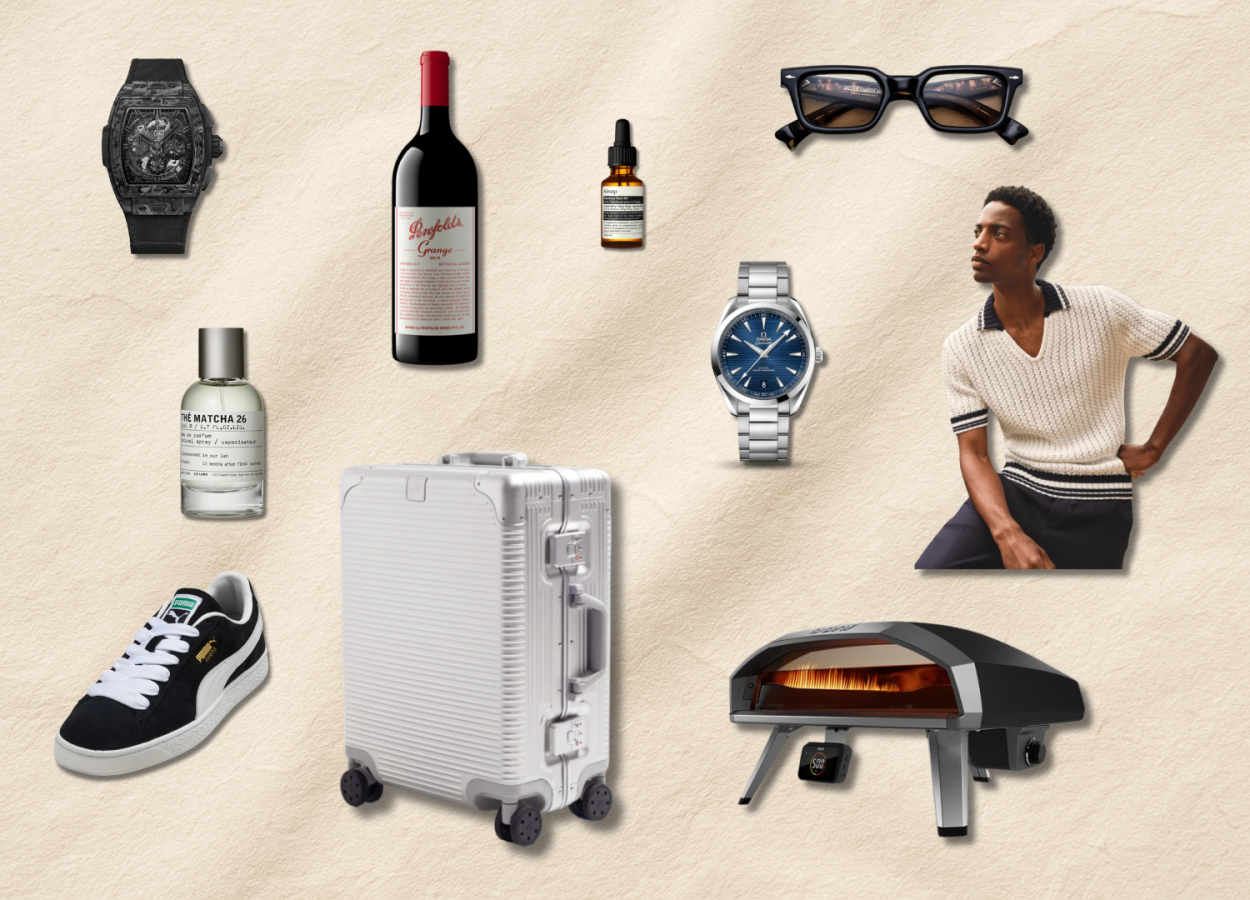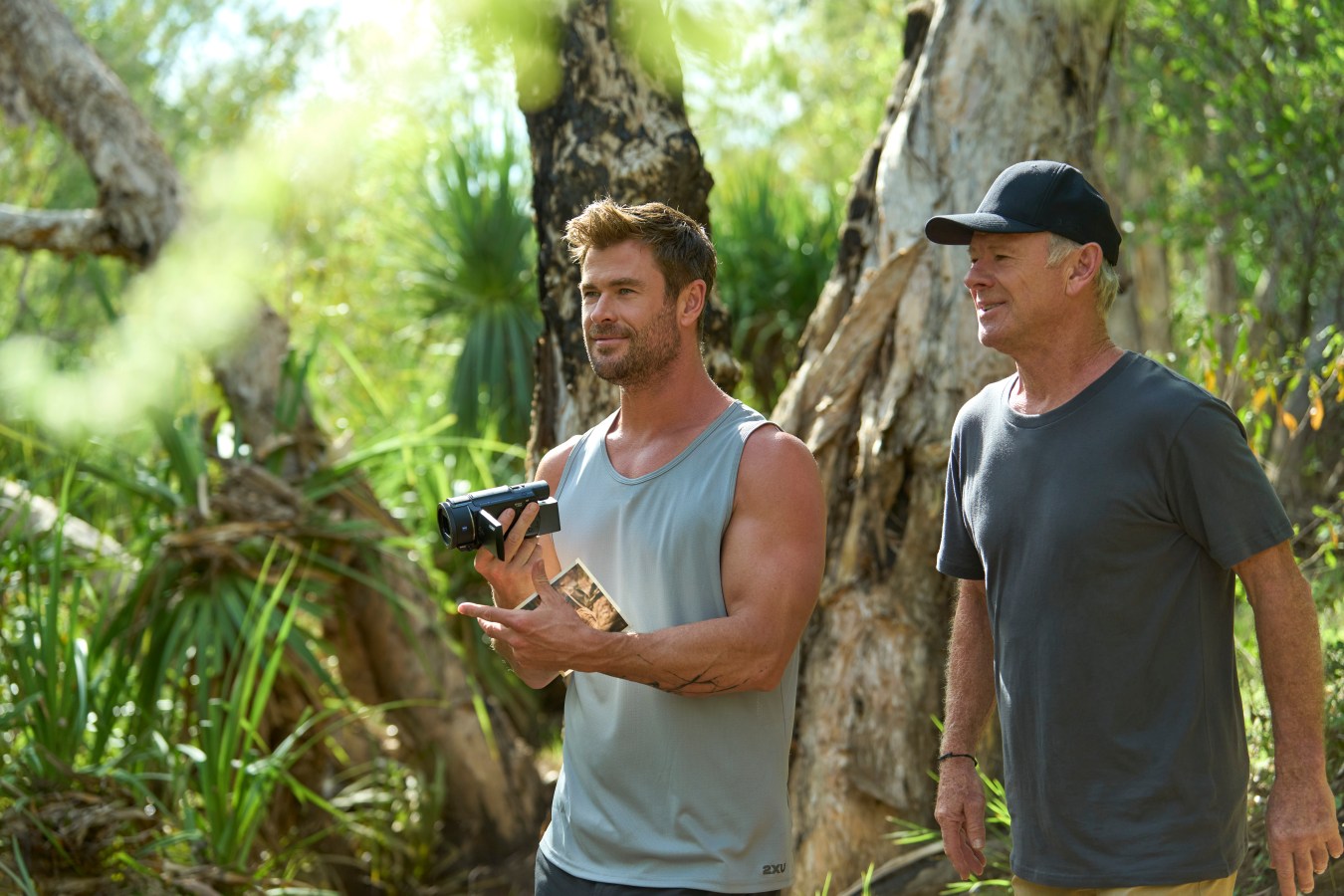Once stripped back to a dormant website, Antler is now reclaiming its place in the $86 billion luggage industry, guided by heritage rather than hype.
This story appears in Issue 19 of Forbes Australia, out now. Tap here to secure your copy.

Among the glamorous luggage spinning endlessly on airport carousels, the competition has never been fiercer.
At the top end sits Rimowa and its aluminium shells, equal parts status symbol and suitcase. Samsonite remains a sales juggernaut. Melbourne startup July is now riding a Qantas deal into ubiquity. And then, among others, sits Antler, the British brand that went into administration during the pandemic and now finds itself clawing back relevance under Managing Director Kirsty Glenne.
The story of the brand’s revival begins not with glossy airport lounges but in the fallout of collapse. In London, three years ago, the 111-year-old luggage maker was being sold out of administration. A name once tied to round-the-world journeys had been stripped back to a dormant website and unsold stock, says Glenne. The brand was eventually picked up by ATR Group, the Australian retail darling that also owns Strandbags and Nere.
Into that vacuum stepped Glenne, who joined in May 2022 after senior roles at Dr Barbara Sturm and Alexander McQueen, where she grew e-commerce revenue from £3 million to £70 million. Her brief was blunt: rebuild the brand, reset the product, and give the company a point of view that made sense in the way people travel now.
“What I actually inherited was quite old products, a brand that hadn’t been looked after by the previous owners, because it hadn’t traded since they bought it, really, because of the pandemic,” she says over coffee during a visit to Sydney’s Cappella Hotel. “I inherited a website and some products.”
“Everyone knew Antler, but they didn’t realise it was British, and they didn’t realise it was 100 years old. We had a lot of work to do to build that brand equity because that’s what’s special about it.”

Antler’s rebound rested on three fronts: product, distribution and brand, Glenne says.
The rebrand in May 2023 gave the company a new logo and visual identity, along with partnerships with Soho House and the British Fashion Council.
Distribution followed. Strandbags’ 260 stores across Australia and New Zealand gave Antler scale in its second-largest market, while Myer and David Jones added department store reach. In the UK, John Lewis and Selfridges carried the brand reset. And in the US, a mid-2023 launch delivered some decent traction.
In late 2024, Antler opened its first stand-alone Australian store at Sydney’s Homebush DFO, positioning itself alongside Prada, Burberry and Jimmy Choo.
On product, Glenne focused on designing Antler’s core pieces – cabin and check-in cases, totes and backpacks – to work as a system. Cases slide and clip together so travellers can move hands-free, a detail she says was about making the brand “more democratic” rather than chasing luxury status.
Part of the work was also about repositioning Antler against a market flooded with similar offerings featuring ultra-luxury brands like Rimowa and the ever-reliable Australian favourite July. So, exactly where does it sit in the luggage carousel ranks?
The positioning is neither luxury nor value. Glenne calls it “accessible premium” – a considered purchase that avoids status-signalling. “People are proud to use their Antler,” she says. “Whereas maybe some of the other brands, it’s the status and badge. We’re not that.”
“Everyone’s got their pastel colours, everyone’s, you know, selling a holiday, like the vacation,” she says. “So, we just stripped it back to the essence of the brand, which is durability, trust, craftsmanship.”
As the rebuild took shape, the numbers began to move. In the year Glenne joined, sales were about £5 million. By 2025, revenue had reached £45 million. The company says it has been profitable throughout. The target now is £100 million by 2029, which Glenne calls “ambitious and aggressive” but insists is achievable.
Within 24 hours of our conversation, Antler confirmed it had acquired Paravel, the New York luggage label that filed for bankruptcy earlier this year. The deal gives Antler a route into the US and rounds out what ATR Group calls a House of Travel Brands: Antler in the UK, Nere in Australia, Paravel in the US.
Look back on the week that was with hand-picked articles from Australia and around the world. Sign up to the Forbes Australia newsletter here or become a member here.



